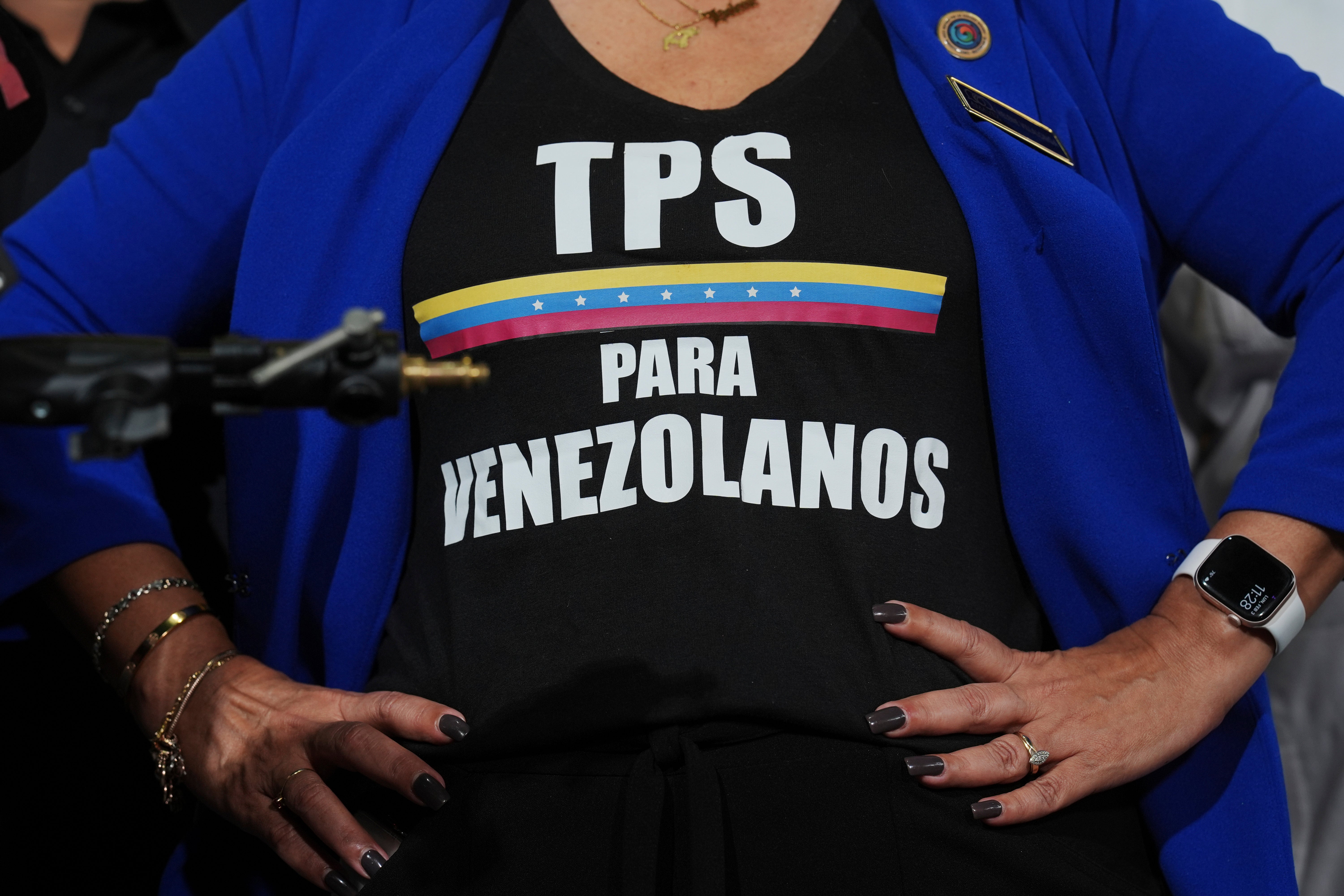The Supreme Court has ruled that Donald Trump’s administration can begin taking steps to deport more than 500,000 immigrants who were granted emergency humanitarian protections to legally live and work in the United States.
A brief order from the nation’s highest court on Friday allows the administration to revoke temporary legal status granted to roughly 532,000 immigrants during Joe Biden’s administration.
The end of legal protections for people from Cuba, Haiti, Nicaragua and Venezuela follows the Supreme Court’s separate order ending those same protections for another 300,000 Venezuelans earlier this month.
Taken together, the orders pave the way for the Trump administration to deport more than 800,000 people who have legally lived and worked in the United States for several years.
Justices Ketanji Brown Jackson and Sonia Sotomayor dissented to Friday’s order.
In her dissent, Justice Jackson warned that the court ignored the “devastating consequences of allowing the government to precipitously upend the lives and livelihoods of nearly half a million noncitizens while their legal claims are pending.”
Last month, District Judge Indira Talwani in Massachusetts temporarily blocked an order from Homeland Security Kristi Noem that would have ended legal status for more than 530,000 people admitted to the program, called humanitarian parole.
The judge’s order maintained temporary legal status for roughly 110,300 Cubans, 210,000 Haitians, 93,100 Nicaraguans and another 117,300 Venezuelans.
Ending those protections would force targeted immigrants to “choose between two injurious options: continue following the law and leave the country on their own, or await removal proceedings” that put them “at risk of arrest and detention” and effectively kill any chances of “receiving other forms of immigration relief in the future — potentially permanently,” Judge Talwani wrote.
The cases before the Supreme Court are among more than a dozen based on emergency requests from the Trump administration for the court’s intervention — including in several case stemming from the president’s immigration agenda.
Earlier this month, the Supreme Court allowed the administration to cancel temporary protected status for roughly 350,000 Venezuelans who fled President Nicolas Maduro’s regime.
Lawyers for the Trump administration said a Biden-era extension of those protections was not in the “national interest” and revoked them, a move that a federal judge said “smacks of racism” and threatened “irreparable harm” on hundreds of families.

Thousands of Cubans and Vietnamese people were admitted to the United States though humanitarian parole programs in the 1960s and 1970s. The Biden administration opened the program to Ukrainians fleeing Russia in 2022.
The Biden administration then extended the program for Venezuelans in late 2022 and for Cubans, Haitians and Nicaraguans in January 2023.
Immigration authorities deported more than 17,200 people in April, marking the first time that removals under Trump have surpassed levels compared to the same period last year during the Biden administration.
Still, despite the figures representing a more than 50 percent spike since February, the administration isn’t on track to meet the president’s promise to rapidly deport millions of people.
The administration is deporting people at less than half the pace it would take to reach the single-year deportation record of roughly 430,000 people, which was set during Barack Obama’s administration in 2013.
Trump’s efforts to summarily deport immigrants — including alleged gang members and student activists — has faced an avalanche of lawsuits alleging due process violations.
Administration officials have reportedly resorted to pressing law enforcement to do more, with top White House aide Stephen Miller allegedly berating colleagues to make at least 3,000 arrests per day.







